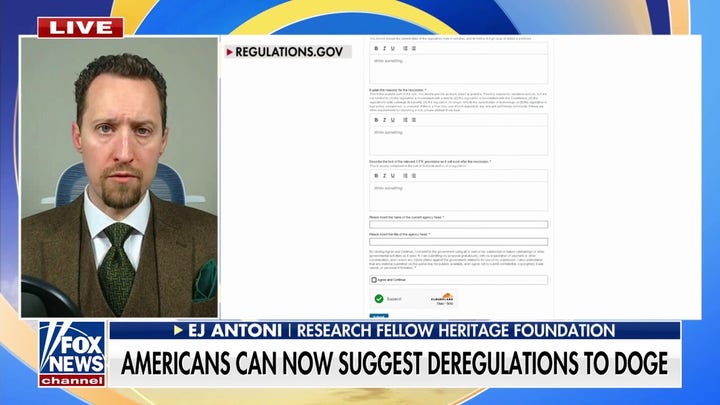
President Donald Trump and Elon Musk’s Department of Government Efficiency have been aggressively overhauling the bloated and cumbersome U.S. federal bureaucracy by re-examining contracts, questioning what taxpayer dollars are funding and who that funding is going to.
The public health sector hasn’t been immune, with the Trump administration poring over the layers of bureaucracy and freezing or canceling millions in grants. Countless programs within the Department of Health and Human Services (HHS), including those designed to target the treatment and spread of HIV/AIDS, are, or will be, in the crosshairs.
As a former White House director of national AIDS policy who was one of the chief architects of the President’s Emergency Plan for AIDS Relief (PEPFAR), the first director of the HIV/AIDS Bureau at the Health Resources and Services Administration (HRSA), and as an LGBT conservative with a career in medicine, business, and public health, I believe HIV/AIDS advocates should embrace and support such a review.
While it is critical that the United States’ demonstrably effective long-standing strategy tackling the HIV/AIDS epidemic, and the resources dedicated to it, remain intact, many of these federal programs have not been re-evaluated in years, nor have they been audited for waste, fraud or abuse.
Advocates in support of maintaining the United States’ aggressive approach to the HIV/AIDS epidemic should welcome the review of HIV/AIDS specific initiatives to ensure that they are optimally designed to meet the needs of the current epidemic.
Take the Ryan White CARE Act, for example, which funds essential healthcare services for uninsured and underinsured individuals living with HIV/AIDS in the U.S. The program, which received $2.5 billion in federal funding in FY 2024, hasn’t been reauthorized by Congress since 2009. In that time, the expansion of healthcare coverage through Medicaid substantially reduced the number of people who needed Ryan White support for medical care and pharmaceuticals, yet its budget continued to grow.
A reauthorization process would allow for a close look at spending priorities embedded in Ryan White – an initiative that was designed before highly effective HIV/AIDS therapy was even available. Surely, the HIV/AIDS community would do well to see if that funding might be better reallocated elsewhere, such as toward substance abuse and mental health services, or other needed care.
DOGE can also remedy unnecessary bureaucratic overlap. The Ryan White program is run through the HRSA, and the Ending the HIV Epidemic initiative, started by Trump during his first term, is run through the Centers for Disease Control and Prevention (CDC). Despite the programs’ complementary missions, they are siloed off into separate entities with their own budgets and staff, resulting in unnecessary administrative overhead costs and potentially wasteful spending.
The Trump administration is reportedly looking to streamline these two initiatives into one program run through the HRSA to consolidate the resources and make them more efficient. Advocates for a strong public health response to HIV/AIDS should be open to considering these kinds of commonsense reforms and not wringing their hands or fearmongering to voters.
While efficiency is needed, it would be a grave mistake to deprioritize funding for the HIV/AIDS epidemic as national policy. While new cases of the disease are on the decline in the U.S. due to advances in treatment and prevention efforts, data has shown that cutting those efforts leads to spikes in new infections, which in turn burden the healthcare system with costlier care and treatments down the line.
Another critical pillar of the U.S. approach to the epidemic is PEPFAR, which funds HIV/AIDS prevention, treatment, and care globally. PEPFAR’s value is not only as a cost-effective success in saving millions of lives but also as a means of exerting significant diplomatic influence with dozens of partner nations.
Secretary of State Marco Rubio granted PEPFAR a waiver from the initial suspension of global health initiatives in the first days of the Trump administration. That does not mean that PEPFAR should be immune from an audit for inefficiency.
Like all federal programs, there must be improvements that can be made and waste that can be cut. PEPFAR’s strategy and tactics, however, are undeniably working with an incredible return on investment. Keeping the program efficiently funded should be a bipartisan priority.
It’s easy to panic over reports of specific cuts or reorganizations to HIV/AIDS programs. Opponents of the Trump administration have every reason to fearmonger around the issue, as federal funding for prevention efforts is generally popular.
But, if we genuinely care about the fight against HIV/AIDS, we must recognize that these programs, like the federal government itself, are not perfect. These HIV/AIDS programs are long overdue for auditing, evaluation and perhaps reorganization, and as long as our commitment to fighting the disease remains intact, the United States’ efforts will be stronger for it.


